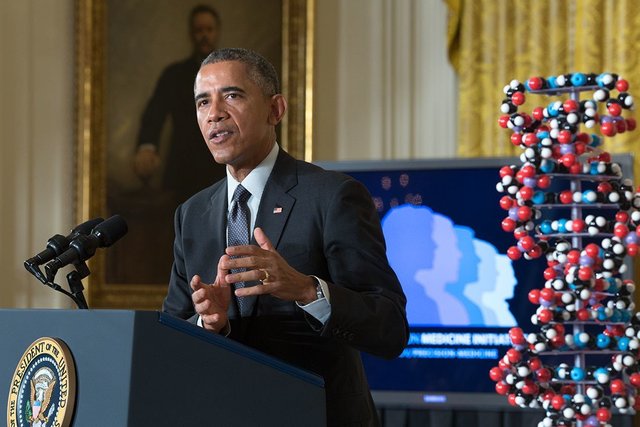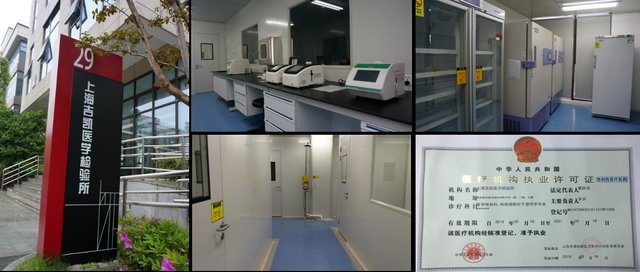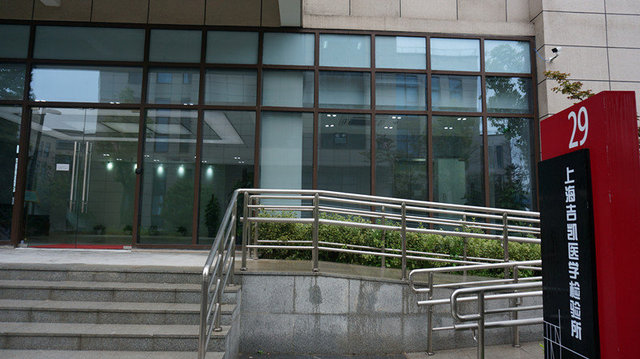Comparison and Prospect of the Development of Precision Medicine in China and the United States
Since Obama officially announced the "Precision Medical" program in 2015, there has been extensive discussion in the industry on how to achieve precision medicine, how to achieve precision medicine, and how to achieve precision medicine in clinical practice in China. For the "precise diagnosis", the industry currently understands that it is relatively narrow, and almost equates accurate diagnosis with the field of tumor sequencing.
It is true that the positive significance of sequencing technology is to gradually realize the diagnosis of cancer according to the logic of omics, which has changed the understanding of a complex disease such as tumor to a large extent, and has also changed the strategy of advanced cancer diagnosis and treatment to a large extent. Process. But accurate diagnosis covers a wide range of topics, not just in the field of tumor sequencing.
Therefore, the author compares the differences in precision medicine between China and the United States, expresses his own views on the actual situation of clinical diagnosis in China, and discusses the future development direction of Jikai Medical Laboratory.

The main project directions of precision medical care in the United States are:
1. Better understand cancer. NCI will design faster and more effective cancer detection methods, based on personalized cancer treatment, expand clinical cancer trials, conduct cancer exploration, and establish a “cancer knowledge network†nationwide to share innovative technologies and promote scientific development. .
2. Encourage national participation. NIH works with other agencies and related companies to mobilize ordinary people to participate in the “precise medical†program.
3. Comprehensive protection of personal privacy. A multi-stakeholder policy bill is introduced to address legal and technical issues related to personal privacy and data security in precision medical plans.
4. Promote modern management. Review existing management programs to determine if they apply to the development of this new research and management model.
5. Call on all parties to work together. The Obama administration will strengthen the cooperation of existing research teams, patient groups and private companies, expand the infrastructure needed for the Cancer Genome Research Institute and form a team of millions of volunteers. The government will call on researchers from all walks of life to work together. The government will carefully consider all aspects of precision medicine, including a standardized regulatory system to ensure that volunteers have access to their health data and obtain safe and accurate analytical services. In addition to treating diseases, it is also possible to manage the health of individuals and families.
The clinical reality in China is obviously quite different from that in the United States, mainly reflected in:
1. China's biomedical research is still in a state of tracking, with few basic primary researches and many methodological and technological studies. Most of the research and development is still based on the results of big data research in foreign countries, especially the United States. The accumulation of data in China is not systematic and comprehensive.
2. The application of new technologies in clinical practice in China is highly motivated but there are many obstacles in practical application. Due to China's current tense doctor-patient relationship, strict listing approval, rigid price approval process, new technology and new products are longer than the US similar products in terms of obtaining the marketing approval period and the path to obtaining legal returns. In addition, due to the imperfect medical insurance system in China, most of the new inspection technology costs are borne by patients, and the promotion is far more difficult than the United States and other developed countries.
3. China lacks clear policy guidance, especially in the areas of laboratory self-construction (LDT) and companion diagnostics (Companion Diagnostics). In the current realistic environment of cancer diagnosis and treatment, there is no good policy environment to quickly achieve accurate diagnosis.
4. China's medical care is still dominated by the government, and clinical participation is still insufficient. The investment of enterprises is still cautious and limited due to various objective reasons, and there are still many bottlenecks in the transformation of scientific research results. The follow-up investment is still the mainstream, and the market environment is bad.
Tumor is a complex disease that develops over a long period of time, and the focus is not on advanced treatment. The hope for cancer prevention and control lies in early screening, diagnosis and intervention. Radical treatment depends on accurate diagnosis in the early and middle stages. At these clinical decision points, there is still a lack of clinical diagnostic aids. These techniques require reasonable methods of sampling, reporting time, throughput, cost, and better clinical accuracy. Therefore, it is a long-term goal of tumor diagnosis to provide more accurate and reliable diagnosis of the clinical stages of early, middle, late and late stages of tumor diseases.
Based on the above understanding, the Jikai Gene Group has established the Shanghai Jikai Medical Laboratory .

Ji Kai development direction of the medical tests are: to provide accurate diagnostic tool for the whole tumor clinicians.
In the early days , the development of immunohistochemistry will provide respiratory physicians with a highly sensitive, highly specific, inexpensive, high-throughput screening tool for lung cancer. At the same time, we use the development of methylation, assisted cytology detection methods, to provide a more specific lung nodule judgment tool.
In the mid-term , patients undergoing radical surgery, we provide excellent cell susceptibility testing in the selection of postoperative adjuvant chemotherapy, to help clinically identify the most effective chemotherapy.
In the advanced stage , we provide stable and inexpensive nucleic acid detection methods to assist in the selection of five marketed targeted drugs.
In the final stage , using sequencing technology and digital PCR technology, we help patients choose more than 40 new-generation drugs that are available internationally, as well as molecular events that predict early recurrence and metastasis, and strive for more survival opportunities for patients. Based on the above clinical practice, we will cooperate with the clinical implementation of the sample library, information base, especially the establishment of the follow-up library. Gradually improve the improvement of big data for the diagnosis, treatment and prognosis of Chinese patients. Really realize the deep digging of China's clinical resources, and provide the basis for the development of new generation testing products in the future.
In terms of operation mode , in view of the clinical practice in China, we use the combination of kit sales, hospital cooperation training, and medical examination and delivery to meet the clinical needs of the hospital in an all-round way, and legally and compliantly the latest and most suitable technology. Introducing hospitals while controlling costs and lowering the threshold for use, truly benefiting patients.

Although the Jikai Medical Laboratory has just been established, it is standing on the shoulders of giants. Future opportunities and challenges coexist, and we will definitely occupy an important position in the market for accurate diagnosis.
about us
Shanghai Jikai Gene Chemical Technology Co., Ltd. was established in 2002 and is headquartered in Shanghai Zhangjiang Hi-Tech, a national high-tech park. The company is committed to translational medicine and precision medical research. It has four subsidiaries: Shanghai Jikai Gene Technology Co., Ltd., specializing in the research and development of gene therapy products, and has a GMP-level genetic engineering virus carrier production workshop; Shanghai Jikai Medical Technology Co., Ltd. Focus on the direction of gene detection, with a clinical medical laboratory; Shanghai Jinjian Biotechnology Co., Ltd., focusing on cancer drug target discovery and oncology drug development, has a number of gene target invention patents; Shanghai Jisheng Medical Technology Co., Ltd., focusing on Biotechnology upstream and downstream product integration. While stabilizing gene function research and services, the company has entered the field of gene therapy and gene detection based on the original research and development results and market channels, forming a situation in which the three directions of diagnosis, treatment and research go hand in hand, for the basic research of integrated gene technology. And a comprehensive and comprehensive platform for clinical applications.
If you are interested in the latest information on translational medicine and precision medicine, please pay attention to the Jikai Gene Transformation Medical Platform!

Canned Mandarin Oranges in Light Syrup are packed with Satsuma variety orange with sugar. They are gluten free, Non-GMO and no preservatives added.
Our Canned Orange in Syrup are processed with all natural fruits, they are helthy. Every piece of fresh orange is selected and pesticides & heavy metal residual tested. They are processed at the peak of freshness.
During the period of plantation, we provide pesticides for farmers, and professional staffs from the company will guide farmers on how to use and spray pesticides scientifically. After usage, the rest pesticides and pesticides containers will be stored and disposed correctly.

Canned Mandairn Oranges is a good source of Vitamin C, all ages can have it. With processed, portable and shelf-stable canned mandarin oranges in light syrup, you can enjoy good taste of fresh oranges at anytime and anywhere.
Canned Orange, Satsuma, Mandairn Orange in Plastic Cup, Canned Mandarin Orange Whole Segments, Foodservice Canned Mandarin Orange
ZHEJIANG FOMDAS FOODS CO., LTD. , https://www.fomdasfoods.com